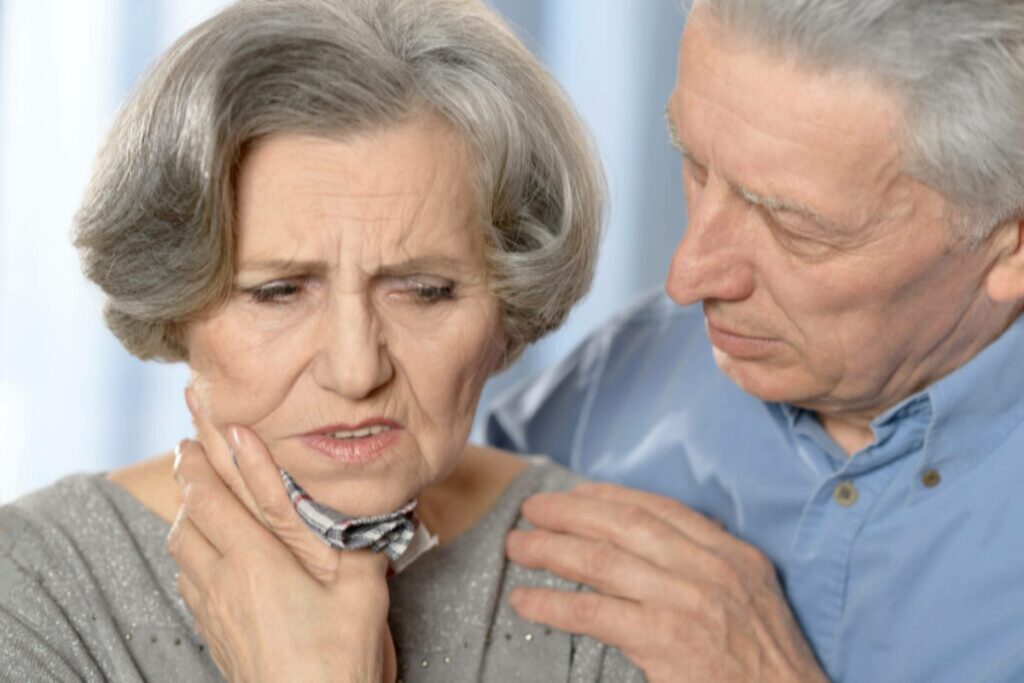What Qualifies as a Dental Emergency?

A dental emergency can catch you off guard, and your trusted team at Great Lakes Dentures and Implants is here to help. We’re pleased to offer compassionate, world-class urgent care to get your smile back on track. But what exactly qualifies as a dental emergency, and what can you do before receiving the needed emergency care?
What Qualifies as a Dental Emergency?
Not every dental problem requires urgent care. In general, what constitutes a dental emergency is a situation requiring immediate attention to relieve severe tooth pain, save a tooth, treat an infection, or stop bleeding.
If you experience a dental emergency, contact our office right away. Our emergency dentist will evaluate your concerns and explain the steps you should take to stabilize your condition while waiting to get the needed urgent care. If the emergency occurs outside our office hours, please call our office number and speak with our on-call dental professional for guidance.
If you or a loved one experience a life-threatening emergency, please call 911 for assistance.
What Are Common Dental Emergencies?
The following are some common dental emergencies and care tips to ensure the best possible outcomes:
A Knocked-Out Tooth: A knocked-out permanent tooth treated within an hour of injury has the best chance of being saved. After calling our office for an emergency appointment, pick up the tooth by its crown without touching its roots. Rinse it with warm water and gently slide it back into its socket. If that’s not possible, carry the tooth in a container of milk to prevent it from drying out and bring it with you to your appointment.
Toothache: If swelling or other signs of infection accompany your pain and discomfort, seek emergency dental care right away. Never place aspirin or other painkillers on the affected tooth to avoid damage to your gum tissues. Instead, apply a cold compress to your cheek and call us for an emergency appointment.
A Chipped, Broken, or Loose Tooth: Contact us right away if you have a chipped, broken, or loose tooth. While waiting for your appointment, rinse with warm water and apply a cold compress to reduce swelling and relieve any discomfort. Collect any pieces of the affected tooth, place them in a container of milk and bring them with you to your appointment.
An Abscess: If you see a pimple-like bump on your gums, call us immediately for an emergency appointment. An abscess can be a serious infection and will require an immediate root canal treatment or even a tooth extraction. Neglecting to seek treatment can result in oral and overall health complications.
Bleeding from the Mouth: Bleeding resulting from trauma can usually be managed by placing gentle pressure on the area until you receive emergency dental care. If, however, the bleeding is severe and uncontrollable, call 911 for assistance or head to the nearest emergency room.
How Can You Prevent Dental Emergencies?
While it’s not possible to eliminate dental emergencies, there are things you can do to lower the risk of developing one. Maintaining good oral health practices and visiting Great Lakes Dentures and Implants for your routine dental exams and cleanings will help keep your teeth healthy and sound and ensure any dental problems are treated as they develop, preventing them from progressing and requiring emergency care.
If you grind your teeth in your sleep or play contact sports, we highly recommend wearing a night guard or a sports mouthguard to lower the risk of injury to your teeth and gums. At Great Lakes Dentures and Implants, we are proponents of prevention to keep dental emergencies at bay and to enjoy long-term, healthy smiles.
Emergency Dental Care Near Me in Plainwell, MI
If you or a loved one experience a dental emergency, call 269-888-6686 for state-of-the-art emergency dental care. Our team at Great Lakes Dentures and Implants is fully equipped and prepared to relieve your discomfort and restore your oral health. You can always count on us for care that exceeds your expectations.
